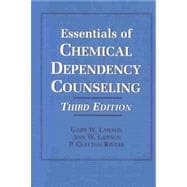| Introduction | xi | ||||
|
1 | (24) | |||
|
1 | (2) | |||
|
3 | (4) | |||
|
7 | (4) | |||
|
11 | (5) | |||
|
16 | (6) | |||
|
22 | (3) | |||
|
25 | (43) | |||
|
25 | (2) | |||
|
27 | (20) | |||
|
47 | (2) | |||
|
49 | (4) | |||
|
53 | (7) | |||
|
60 | (3) | |||
|
63 | (5) | |||
|
68 | (42) | |||
|
68 | (1) | |||
|
69 | (15) | |||
|
84 | (18) | |||
|
102 | (1) | |||
|
103 | (1) | |||
|
104 | (2) | |||
|
106 | (1) | |||
|
107 | (3) | |||
|
110 | (64) | |||
|
110 | (1) | |||
|
111 | (2) | |||
|
113 | (4) | |||
|
117 | (3) | |||
|
120 | (11) | |||
|
131 | (9) | |||
|
140 | (1) | |||
|
141 | (2) | |||
|
143 | (1) | |||
|
143 | (1) | |||
|
144 | (2) | |||
|
146 | (16) | |||
|
162 | (12) | |||
|
174 | (41) | |||
|
174 | (1) | |||
|
174 | (1) | |||
|
175 | (3) | |||
|
178 | (1) | |||
|
178 | (1) | |||
|
179 | (5) | |||
|
184 | (6) | |||
|
190 | (1) | |||
|
190 | (4) | |||
|
194 | (2) | |||
|
196 | (3) | |||
|
199 | (3) | |||
|
202 | (5) | |||
|
207 | (2) | |||
|
209 | (4) | |||
|
213 | (2) | |||
|
215 | (60) | |||
|
215 | (1) | |||
|
216 | (2) | |||
|
218 | (13) | |||
|
231 | (23) | |||
|
254 | (3) | |||
|
257 | (4) | |||
|
261 | (3) | |||
|
264 | (5) | |||
|
269 | (6) | |||
|
275 | (36) | |||
|
275 | (3) | |||
|
278 | (4) | |||
|
282 | (7) | |||
|
289 | (5) | |||
|
294 | (2) | |||
|
296 | (1) | |||
|
297 | (2) | |||
|
299 | (1) | |||
|
299 | (2) | |||
|
301 | (1) | |||
|
302 | (2) | |||
|
304 | (3) | |||
|
307 | (1) | |||
|
308 | (1) | |||
|
308 | (3) | |||
|
311 | (41) | |||
|
311 | (1) | |||
|
311 | (2) | |||
|
313 | (12) | |||
|
325 | (22) | |||
|
347 | (5) | |||
|
352 | (17) | |||
|
352 | (1) | |||
|
352 | (2) | |||
|
354 | (10) | |||
|
364 | (3) | |||
|
367 | (1) | |||
|
367 | (2) | |||
|
369 | (19) | |||
|
369 | (1) | |||
|
370 | (2) | |||
|
372 | (6) | |||
|
378 | (8) | |||
|
386 | (2) | |||
|
388 | (58) | |||
|
388 | (2) | |||
|
390 | (9) | |||
|
399 | (3) | |||
|
402 | (9) | |||
|
411 | (4) | |||
|
415 | (4) | |||
|
419 | (10) | |||
|
429 | (9) | |||
|
438 | (5) | |||
|
443 | (3) | |||
|
446 | (41) | |||
|
446 | (1) | |||
|
446 | (1) | |||
|
447 | (5) | |||
|
452 | (4) | |||
|
456 | (3) | |||
|
459 | (1) | |||
|
460 | (5) | |||
|
465 | (2) | |||
|
467 | (1) | |||
|
468 | (2) | |||
|
470 | (1) | |||
|
471 | (8) | |||
|
479 | (4) | |||
|
483 | (4) | |||
| Index | 487 | (16) | |||
| About the Authors | 503 |








